Flat towing versus tow dolly — what’s the right choice for your dinghy vehicle?
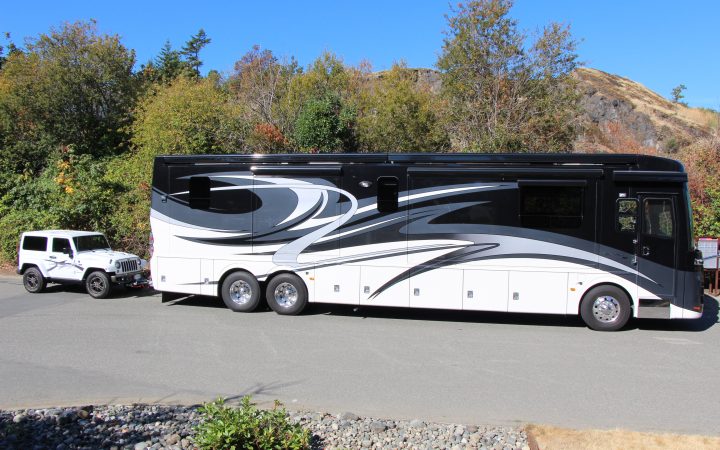
So you’ve decided to tow a car (dinghy) behind your motorhome. Now comes the big question: do you flat-tow your vehicle or use a tow dolly?
Much of this decision is based on the RVer’s intended dinghy type and make.
Let’s look at the pros and cons of each scenario:
Flat Towing (Towing 4-wheels down)
Pro
- Equipment needed usually less costly than a tow dolly
- Quick, one-person hook-up and disconnect.
- No additional storage needed at destination
Con
- Won’t work on all vehicles due to drivetrain limitations.
- Can cause “Feathering” of tow vehicle’s front tires over time.
- Most flat-towed dinghies can’t be backed more than a few feet.
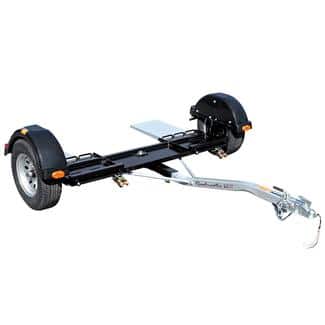 Tow Dolly (attaching the dinghy’s front two wheels to a dolly trailer)
Tow Dolly (attaching the dinghy’s front two wheels to a dolly trailer)
Pro
- No baseplate plate needed on automobile.
- Can transport most front-wheel-drive vehicles.
- Can be backed like other trailers.
Con
- Capital costs usually more than to flat tow.
- Storage needed both at home and at destination.
- Addition registration and insurance may be required, depending on location.
- Generally takes a little longer for loading and unloading
Well, as you can see, both have their points, for and against.
So there are some of the considerations that you may need to study. Again, there are no generic one-fits-all solutions here. What works for one may not be the right choice for another. Weigh the pros and con’s and determine which is best for you.
Consult the 2018 Guide to Dinghy Towing to help you make your decision.
Peter Mercer — Pulling For You

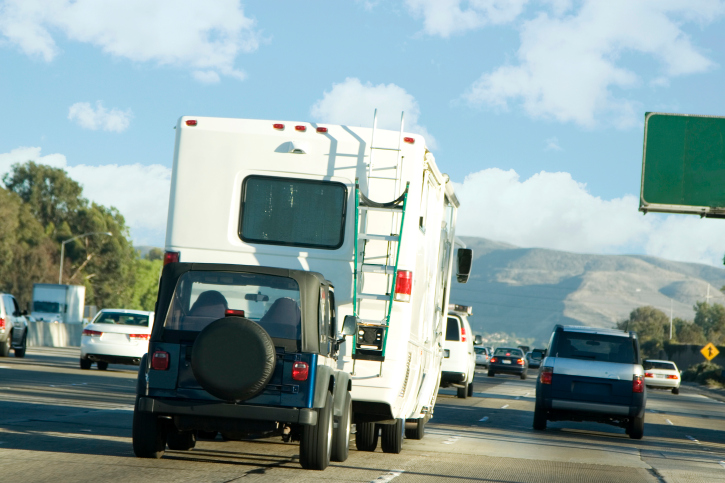



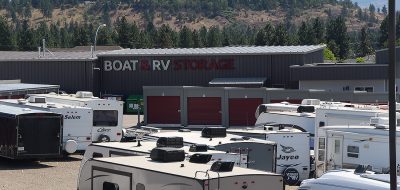

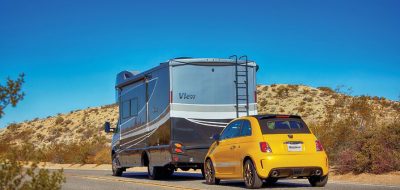

Peter Mercer
You are quite correct. My term “Like any other trailer” is inaccurate. What I was actually referring to was that no binding damage would occur with the dolly as apposed to flat towing. Dolly towing does however, allow one to back up far better than four down. Skill can prevail to back the dolly. Thank you for bring this to our attention. Your comment is appreciated.
Anonymous
And I agree that a tow dolly can be backed like any other trailer, but ONLY IF you haven’t yet attached your car to it. Please show me a video of you backing a loaded dolly any distance. It’ll be entertaining!
Peter Mercer
Very interesting. I was not aware of those tolls in Mexico. Thank you for sharing this information.
Anonymous
I traveling in Mexico to Mazatlán often. If you flat tow you will be charged for a second vehicle. If you use a tow dolly the charge will be for extra axels, which is usually cheaper. If you have dual tires they count for an extra axel, but it seems if you are towing a vehicle with a tow dolly it is over looked and you will only be charged for the extra axels on the dolly and car being towed.
Remember, you are in Mexico anything can happen. One time I was not charged at all because the toll taker was made at her boss.
This has been my experience, when I tow my jeep behind my 3500 Dodge Ram with a ten foot camper I am charged for two vehicles and one extra axel. I have dual wheels on my truck. Average toll is about 65 pesos per vehicle and 40 pesos for the dual wheels, a total of 170 pesos, but not all tolls are 65 peso per car, some are much higher, over a 100 on the pay road and if you take the free road about 20 for a car. The free road, is not actually free! One time I towed my Kia on a dolly to Mazatlán. I was charged 65 pesos for the truck and only 40 pesos per axel, one on the dolly and one on the Kia, a total of 145 pesos I wasn’t charged for the dual wheels. The down side was I had to buy a dolly.
Peter Mercer
You make so great points, however, I stated “Usually costs more”, that is the dollies cost usually exceeds that of flat towing. You mention lighting wiring. The dolly type set-up requires light wiring also. If you have any type of engine or exhaust brake, a separate trailer braking system may be needed. A standard flat tow is usually cheaper to equip than the purchase of a dolly and needed accessories. Thank you for the challenging thought, in some ways you may be right.
Anonymous
Great reading but having been through both towing options, I disagree on a couple of items based on my experience. Flat towing setup is much more expensive than a tow dolly ($4000 vs $1800) and the tow dolly takes a lot longer to hook up & load. (3-5 min flat towing vs 20 min or more for tow dolly).
Clarification: flat towing includes paid labor $$$ for base plates, brake setup in towed vehicle, wiring setup for brakes/brake lights/night time running lights/battery trickle charge & then motorhome setup including wire & dash light to verify dingy brakes are working. The tow dolly requires very little, if any, paid labor $$$ as most motorhomes come prewired & with a hitch.
Anyway, my flat towing experience was definitely more expensive but we’ll worth the time savings when hooking up/disconnecting while traveling. It’s very fast.